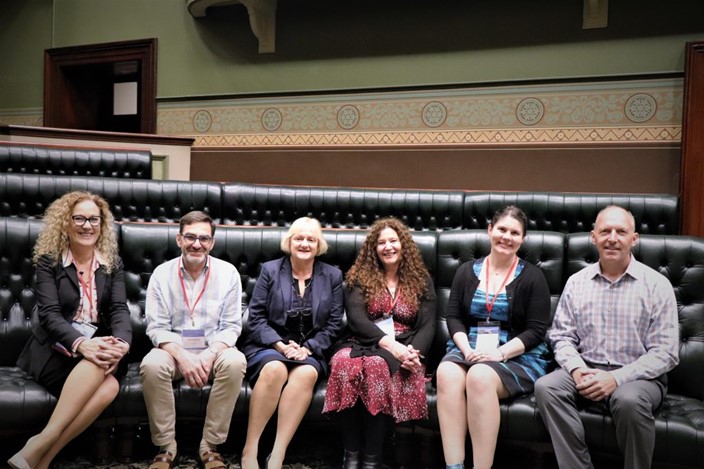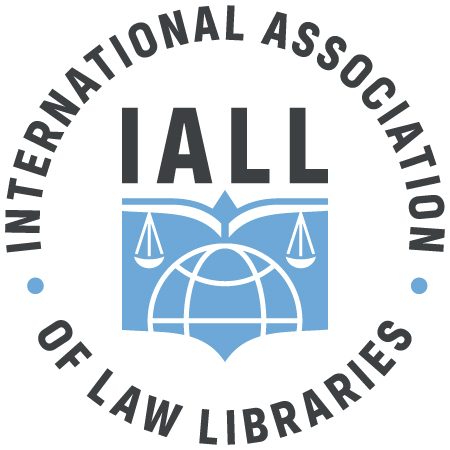How IALL Chooses Future Conference Venues
By: Mark Engsberg, President
International Association of Law Libraries
When considering venues for IALL conferences, the world offers so many interesting, exotic, and exciting possibilities. Locations for future IALL conferences is a favourite topic among IALL members and for those who attend them. I’ve lost track of the number of times someone has come up to me at an IALL conference – or even at other meetings and conferences – to make a suggestion of where they believe IALL should host a future conference. There are so many amazing places to consider!
Most of these suggestions are exciting or inspiring places that just about anyone would like to visit. But there is so much that goes into selecting a venue for an IALL conference beyond just what would be interesting, exciting, or unusual. So, let’s talk a little bit about exactly how IALL determines where to host its Annual Courses.
First, let me say what the IALL Board does NOT do when selecting venues for Annual Courses: we do not begin with choosing a location. The entire process is focused on people. Typically, one or two energetic and enthusiastic people who wish to host an IALL Annual Course come forward – often informally, to let someone on the Board know that they are interested in organizing a conference. Sometimes, Board members hear about someone who might be persuaded to help organize a conference and the Board reaches out to that person. This is personal connection is the most critical aspect of venue choice. Having a really solid team of people in a locale who want to do the (enormous amount of) work to host an IALL Annual Course is absolutely critical.
One or two organized, enthusiastic, and energetic people, at least a few of whom should have strong reading and writing skills in English, and support from their host institution, will form a Local Planning Committee (LPC). Eventually, this small LPC will grow to usually around five or six people who will do nearly all of the on-the-ground legwork to organize an IALL Annual Course. While not absolutely required, the Chair of the LPC, and often other members of the LPC, are members of IALL and have attended other IALL Annual Courses. This gives them an understanding of the IALL culture, IALL’s smaller, single-track format for its conferences, the right blend between substantive legal and library content and networking opportunities, as well as the close relationships IALL encourages between conference delegates and conference sponsors. This understanding in the rhythm, flow, and first-rate conference content is something the Association seeks in potential LPC members, and it helps ensure a continuity of excellence in the experiences for delegates from one Annual Course to the next.

(from left) Robin Gardner, James Butler, Vanessa Blackmore, Deb Bennett, Larissa Reid. Board Liaison: Kurt Carroll
If the LPC looks promising, the Board will provide encouragement in the form of advice and guidance about the planning process and the application process. Yes, there is a well-ordered and thoughtful process which is found on the IALL website. It describes in detail the criteria the Board uses when deciding on future venues. There is even guidance about general world regions when and where IALL tries to organize Annual Courses. All of this information can be found here: https://iall.org/annual-conference-2/criteria-for-future-conference-venues/.
The site enumerates an application process that a prospective local planning team must follow. There are eleven items describing the application process and what an application must contain. Currently, there is not a particular form for applicants to use. Most applications have taken the form of a brief, written report to the Board. I note here that the Board is currently working on a draft of an application form it hopes to roll out soon to further make the process of applying to host an IALL Annual Course more uniform.
Among much other information, the IALL website lists the Factors for Consideration in Selection of Host Venue.

This includes the following:
- The Conference Venue needs to be easily accessible through air travel, and, eventually, further transportation
- The Conference Venue needs to be a safe city for the attendees
- The Conference Venue needs to have a home base of professors, scholars, or others in the legal arena as presenters, all of whom are proficient in speaking English, the official language of the IALL,
- The Conference Venue needs to show proof concerning the honoring of Freedom of Speech
- All necessary official authorization for holding of the conference will be the responsibility of the LPC
- Ideally, North America, Europe and a third region will host the Annual Course on the following rotational basis; North America at least every four conferences; in or near Europe at least every two conferences; at another location at least every four conferences
- Ideally, the cost of the Annual Course should be cost effective and financially viable
Once an application has been submitted, reviewed, and approved by the Board, the IALL President will appoint a Board Liaison who is a current member of the Board to guide and assist the LPC in their preparations of the Annual Course. The Board Liaison is a resource for the LPC and helps ensure that the Annual Course under his or her oversight conforms to the norms and high standards of all IALL Annual Courses. At this point, the Board will report the future venue to the rest of the IALL membership.
As you can see, the process is fairly lengthy. It often takes several years before a venue goes all the way from hearing an inquiry from a prospective LPC member in some locale to approval of an application to host an IALL conference. Along the way, there are many additional considerations that are taken into account when selecting a future venue for an IALL Annual Course. If there is just one thing, however, that I hope readers take away from this brief explanation of how IALL chooses venues for Annual Courses, it’s that the main factor the Board considers is focused on the people who will be doing all of the major leg work to organize a given conference.
The LPC is the most critical factor in the success of an IALL conference. Making sure IALL has future LPCs under development (i.e. often being prompted and encouraged by Board members!) is a major challenge. After identifying the people who may be organizing a future IALL conference, the Board will also consider things like regional diversity, affordability, safety, and a host of other considerations that may make a potential venue of interest to the IALL membership and to others who may register for the conference.
In closing, I want to encourage readers to continue letting the other IALL Board members and me know about possible venues for IALL Annual Courses that may be of interest to you. I also want readers to help identify excellent individuals who may live in that venue or venues who could possibly be persuaded to serve on an LPC to organize the IALL Annual Course in that location.

This Blog contains entries by members of the International Association of Law Libraries on issues germane to the Association’s areas of focus. Views expressed in an individual entry only represent the views of the author.

